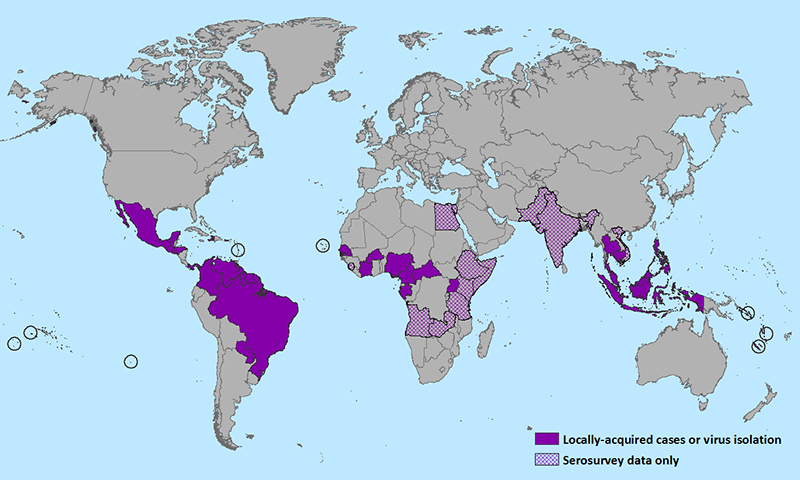
The Zika virus and the increase of microcephaly, a rare birth defect that results in infants being born with abnormally small heads and brains, in Brazil is stirring up a large debate on the topic of abortion.
Brazil has had over 4,000 cases of microcephaly since the past fall, which is 20 times more cases than previous years. With the rise of the Zika virus, a lot of research is being executed in finding the correlation between the two, if any. Though the relationship between the Zika virus and microcephaly in newborn babies is not yet clear, the increases in both have been bringing about worry and debate throughout the world.
Abortion is currently illegal in Brazil, with women facing up to three years in jail if guilty. The only exception for the law is in cases of rape, when pregnancy poses a risk to the mother's life, and when the fetus has anencephaly, where a major part of the brain and skull is missing.
In a meeting of religious leaders from all Christian denominations in Brazil, those gathered agreed to use all of their resources to help guide people in avoiding the virus. Although some of the leaders argued for the necessity of allowing abortion, many of the religious leaders are split about the issue. Roman Catholics are opposed to termination, the Anglicans are undecided, and the Baptists are veering towards supporting a woman's right to abort.
Although the correlation between the Zika virus and microcephaly have not been confirmed, the increase in cases of microcephaly in Brazil has led many to argue that women should have the right to choose not to take the risk of giving birth.
"Women should not be forced to go through with a pregnancy where serious birth defects are still not fully known," said Debora Diniz, a professor of anthropology at the University of Brasilia. Diniz, who is also spearheading the right-to-terminate campaign, says that women "should not be penalized for a government's failing policies because it has been negligent in the handling of an epidemic."
Marisa Lengor Kwaning, a health policy analyst, claims that the news coverage has blown the Zika virus correlation to microcephaly out of proportion. Kwaning wrote in an op-ed on The Christian Post that there have not been documented cases of microcephaly in other regions of Asia and Africa where the Zika virus has appeared before. She argues that even if the Zika virus is found to be directly correlated to the virus, neither abortion nor avoiding pregnancy is the answer, but rather fostering an environment that cares for these babies and mothers of babies with microcephaly and other special needs.
Although, currently, there is no reliable test for Zika, the World Health Organization declares that they are only weeks away from developing a test for the virus. However, large scale clinical trials for potential preventative shots will not be available for at least another 18 months according to Marie-Paul Kieny, the WHO Assistant Director-General for Health Systems and Innovation.



















